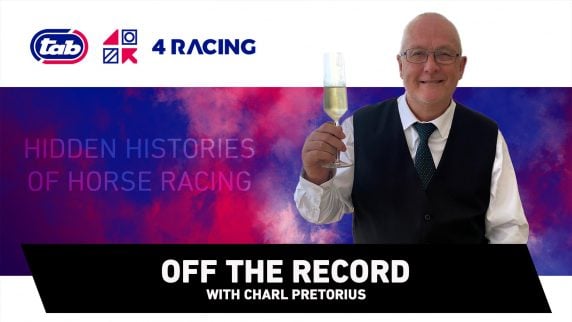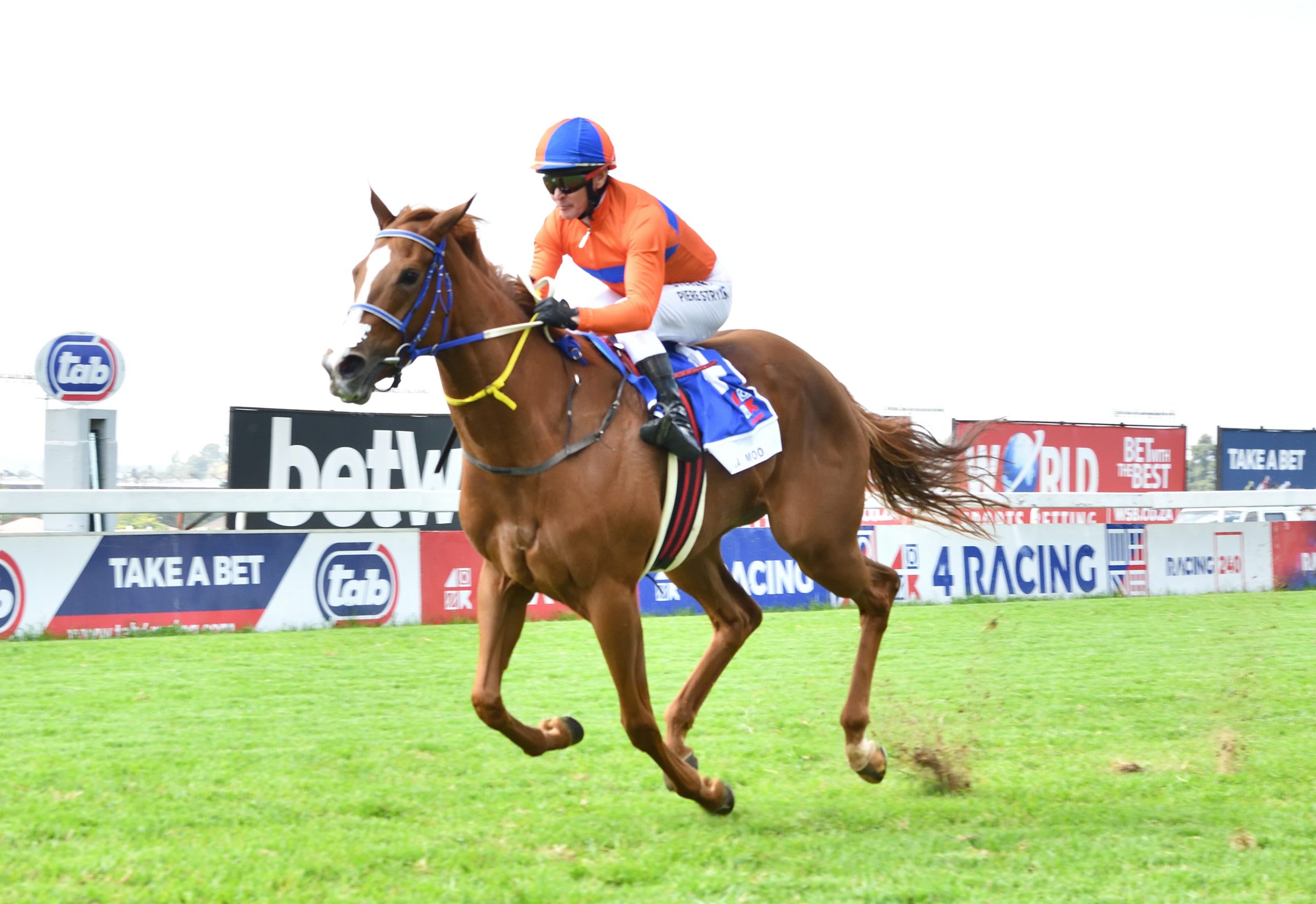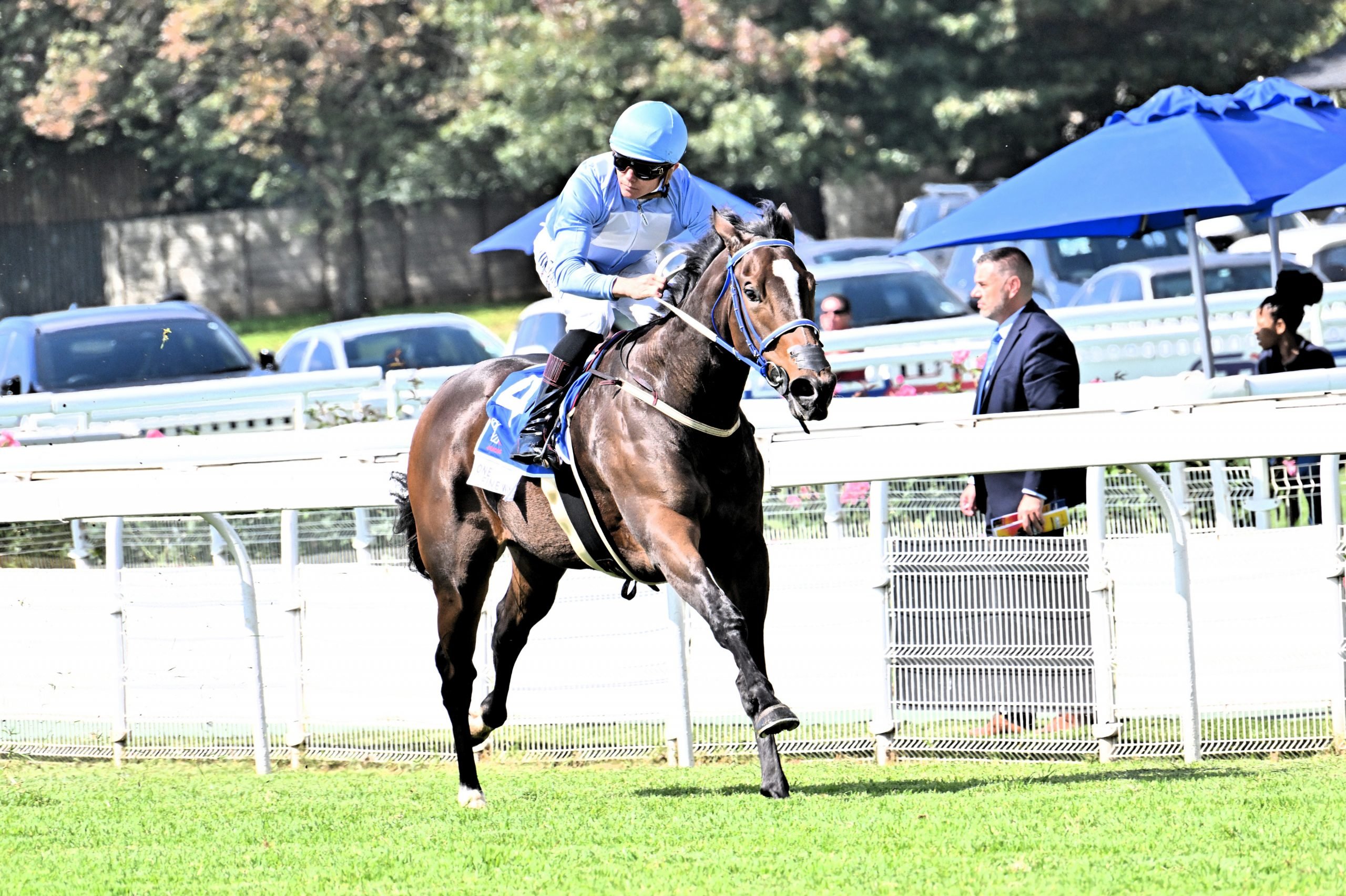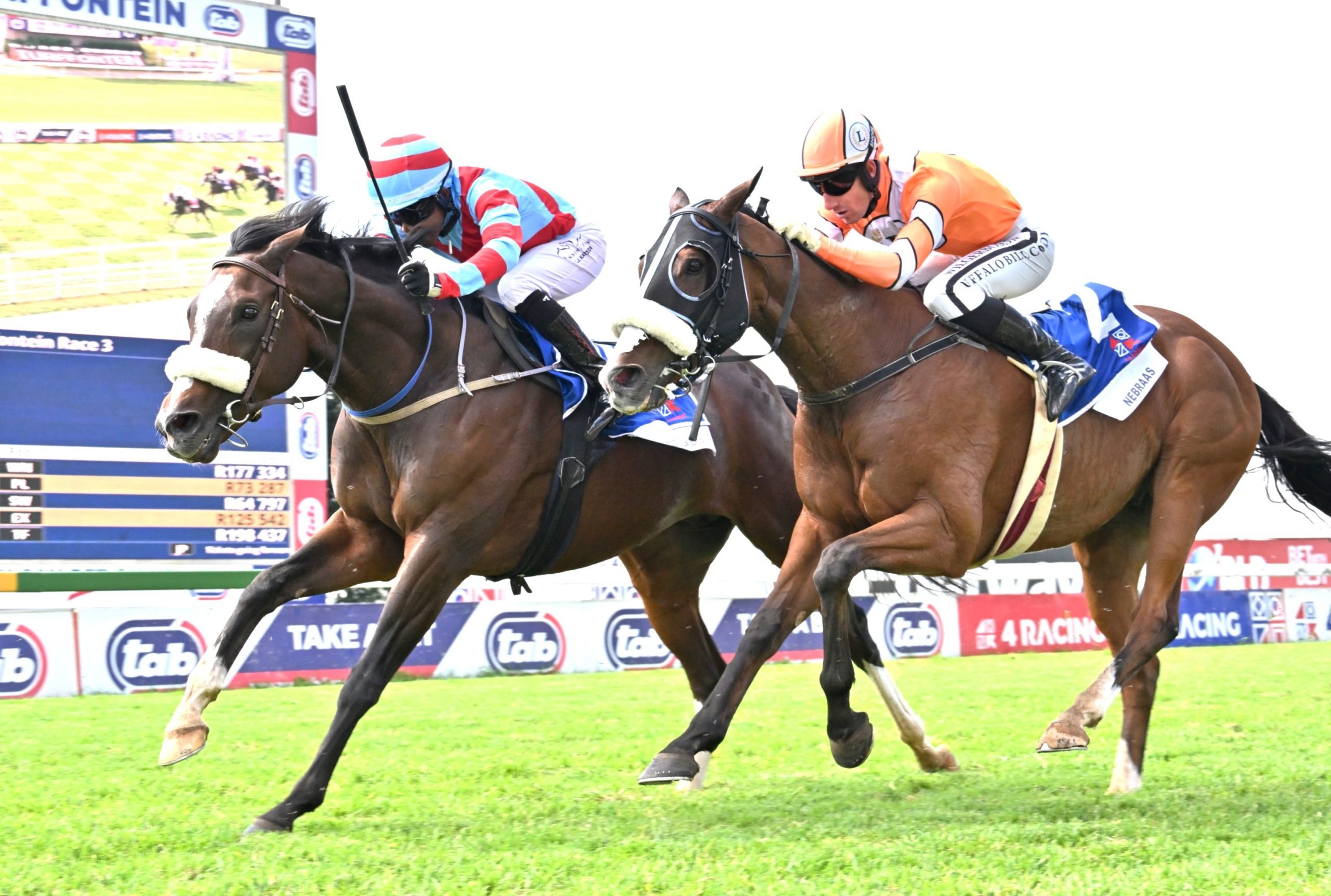Selwyn Elk has lived and breathed horse racing for most of his adult life. His journey through the sport has had many thrills and unforgettable moments.
With a treasure trove of memories, Selwyn (75) has become a captivating storyteller, drawing in friends and fellow enthusiasts with his vivid recollections of racing and its characters from yesteryear.
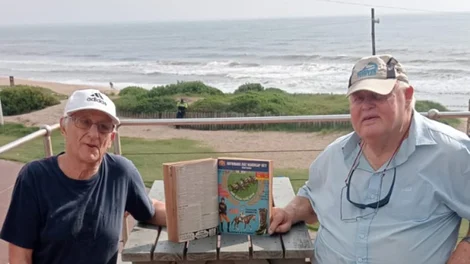
Selwyn Elk and former trainer Dean Latimer with an album of Racing Mirror turf guides (Pic – 4Racing)
George Croucher recognised Selwyn’s ability to bring racing history to life and invited him to host Call Back The Past on his new podcast service, racingradio.net. The podcast will be airing every Friday from 07h00 to 07h30, starting on 07 February.
It promises to transport listeners on fascinating trips down memory lane, while Selwyn showcases his talent for spinning tales that capture the essence of the sport.
Before we share a taste of some of his stories, here’s a glimpse into Selwyn’s background as a racing fanatic.
Selwyn’s father David, a SA Airforce Gunner, owned a small share of C’Est Si Bon (Sadri II), who won the Durban July Handicap in 1954. That was a joyous occasion for the family, but Selwyn’s mother, Hetty, grew to dislike horseracing intensely due the old man’s addiction to its many charms.
Selwyn also joined the Airforce, based at Valhalla in Pretoria. He met fellow service member, Anthony Dell, the son of Archie Dell (breeder of the great Hawaii), and they started going racing at Turffontein.
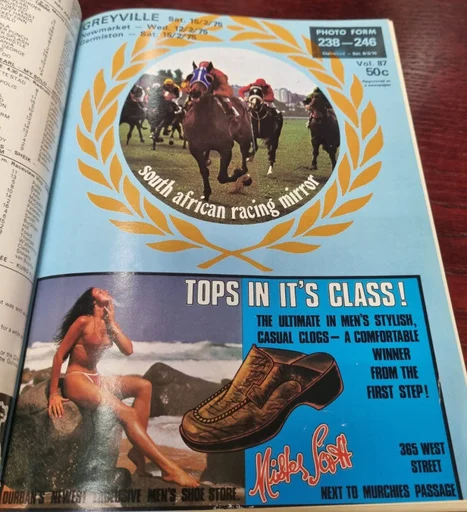
The Racing Mirror was a hit with punters and advertisers (Pic – 4Racing)
“We were paid a salary of R15 per month, which came to about R8 after deductions. But that was enough to spend at the racetrack, where we won most of the time and went home with more than our monthly wages,” Selwyn recalled.
Auntie Hetty was keen to welcome her son on what was scheduled to be his first weekend pass, and his second, and his third, but Selwyn phoned every time to inform her that his pass had been cancelled.
He went off to the races on Saturdays, until his mother threatened to phone the Sergeant Major on duty to find out why the young serviceman was not allowed to come home!
Towards the end of his National Service in November 1967, Selwyn also started visiting the old bookmakers’ ‘Rooms’ at the Tattersalls in Loveday Street, Johannesburg. One Saturday, he was having a haircut with a barber in the Tattersalls building and met a punter who said, “I am friendly with jockey Gerald Turner. He gave me a tip for today. It’s a two-year-old colt called Home Guard in the first at Gosforth Park. ‘GT’ said it cannot possibly lose.”
Selwyn recalled: “I took all the money I had and put it on Home Guard (Penthouse II) at 3-1. He won by six lengths over 800m and I collected a wad of notes. I was smitten with racing, learning more every day. At that early stage I was thinking of becoming a professional punter. This looked like an easy game!”
With his parents, however, keen on a more conventional career, Selwyn joined a shipping company as a junior administrative assistant in Durban. He indulged in his racing hobby on the side and snuck away to the tracks as often as he could.
Selwyn met jockey George Davies, who rode mostly for trainer Herman Brown (Sr) and one day received a true insider’s tip from his friend. Brown’s runner Full Stretch (Michael Roberts) was the hot-pot favourite for a Maiden Juvenile Plate at Hollywoodbets Greyville on 13 February 1971.
Davies was booked for the first-timer, In Full Flight (New South Wales), from the stable of a new, young trainer, David Payne. George had ridden Full Stretch in a race and had also sat on In Full Flight in work. He said that In Full Flight was a champion, Full Stretch was not.
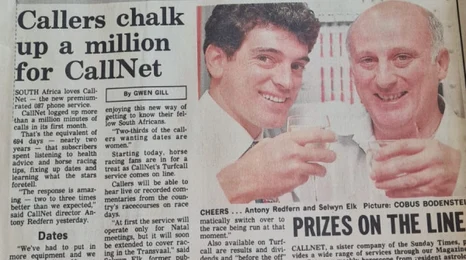
In the headlines: Selwyn Elk’s 087-venture (Pic – 4Racing)
There was some 9-2 available on the Payne runner, and young Selwyn was excited. During his lunch hour, he broke away to the course and lumped on.
In Full Flight, inexperienced, only won by a quarter-length, but the result was in the frame and Selwyn collected what was the equivalent of almost one year’s salary at his shipping company.
“The race was at 13h50,” said the man with an elephant’s memory. “My lunch hour ended at 14h00 and I only arrived back at my office at 14h20. My manager was waiting, and he let me have it. He got nasty, warned and threatened me with dismissal. But I had a pocket full of cash and got brave. I said, ‘Take your job and shove it where the sun doesn’t shine!’ and walked away.
That was Selwyn’s first and only 8-5 job for a boss. For the next several years, he bet on horses and made a good living. In 1974, he founded the form guide, Racing Mirror, with attorney Tony Dumas and pharmacist-come-photographer, Philip Goldkorn.
Racing Mirror was an excellent alternative to the market leader, Duff’s Turf Guide, published for many years by Durban’s race caller, Ernie Duffield. “We used Philip’s colour photographs in Racing Mirror and had some great race analysis. Ernie’s publication only carried black-and-white pics. He started losing readers to us. Racing Mirror sold very well, and we even gained advertising support. The adverts on the front cover paid for the printing bill!”
Racing Mirror was sold to Computaform in 1977. Selwyn stayed on as a consulting editor for a few years. In the early 1990s, he was signed as consultant to CallNet, who ran a highly successful racing advice service during the boom of the 087 Premium Rate tipping lines.
He concluded his career owning a number of high-traffic totalisator agencies in Durban’s Plowright Avenue, Hunter Street, Morrison street and the old Club Med at Kingsmead Tattersalls. These agencies suffered the devastation caused by Covid-19, forcing closure.
Click on the image below to read the full story!


